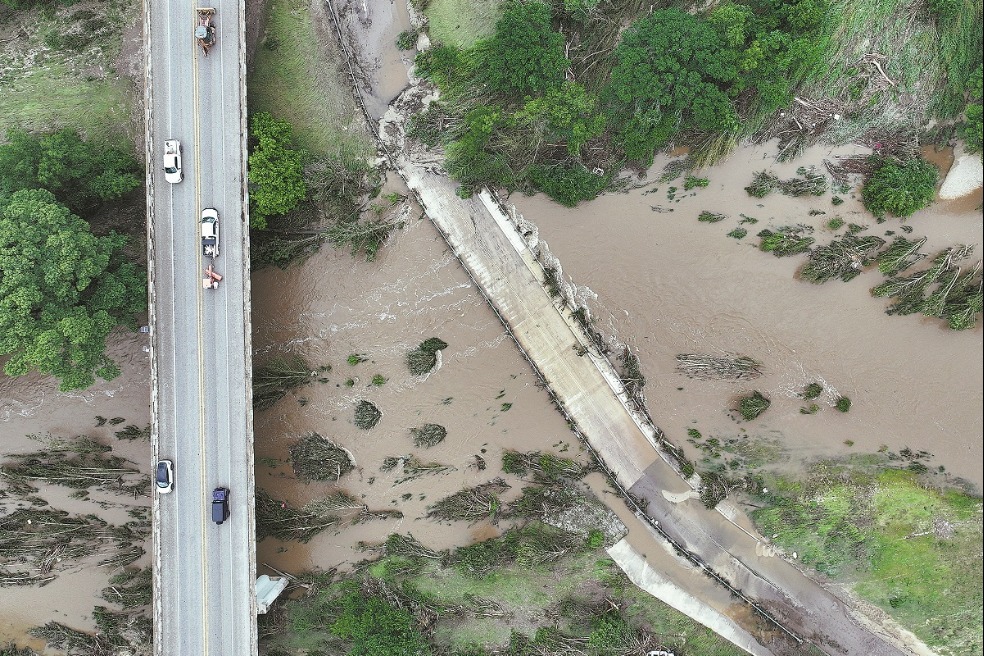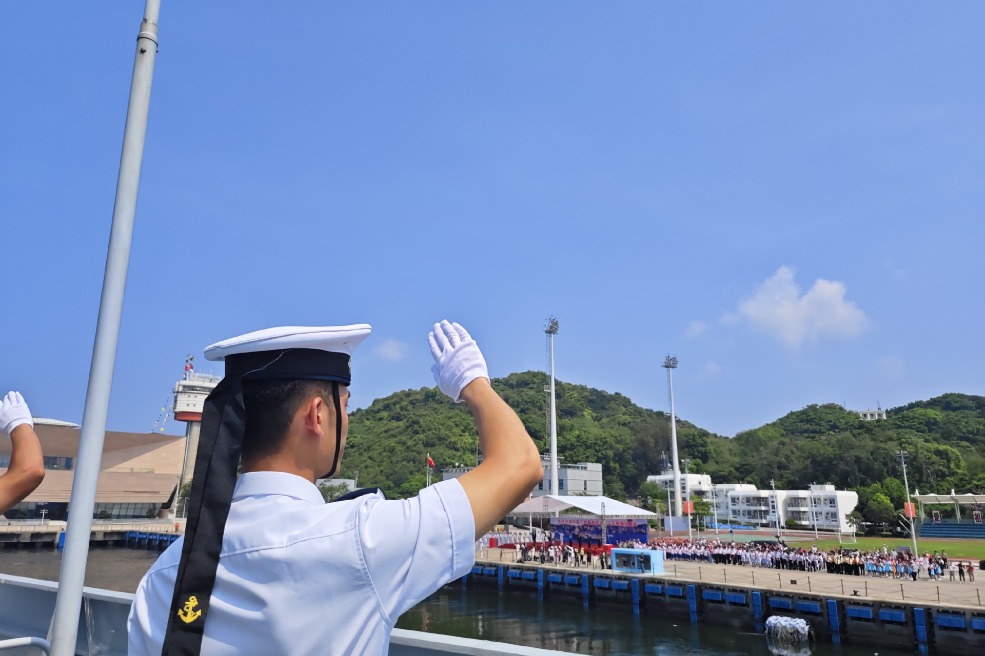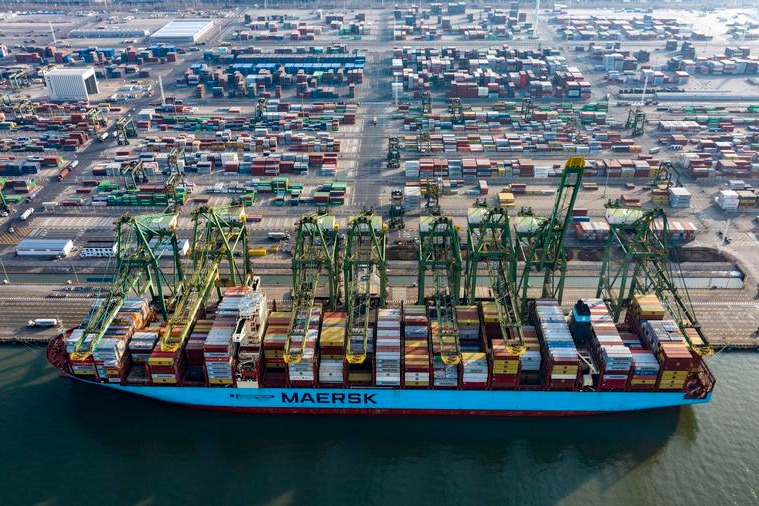Promoting peace and stability in the South China Sea through maritime cooperation


In recent years, as an important advocate of South China Sea cooperation, China is more confident about working with the Southeast Asian nations to jointly shape the South China Sea order in line with the long-term interests of the region.
To this effect, China and the Philippines have established a bilateral consultation mechanism for the South China Sea issue, which has helped them reach many consensuses. China and Vietnam have made joint efforts to enhance mutual trust and manage maritime crises. And China, Malaysia, and Indonesia are actively engaging in exchanges and discussions on pragmatic maritime cooperation. Such initiatives to promote cooperation and consultation have made important contributions to the maintenance of the overall stability of the South China Sea region.
It has also proved to the international community that China and Association of Southeast Asian Nations countries have the will, ability and wisdom to manage their differences and build the South China Sea into a sea of peace, friendship and cooperation.
Since 2020, despite the difficulties caused by the covid-19 pandemic, China and ASEAN countries have conducted effective dialogues on drawing up a Code of Conduct for the South China Sea consultations and measures to implement functional maritime cooperation under the framework of the Declaration of the Conduct (DoC) of Parties in the South China Sea. But at the same time, there have been some disturbing changes in the maritime situation of the region.
First, the "militarization" of the South China Sea, which is led by the United States and followed by some other extra-regional countries, has intensified. Both the scale and frequency of military activities in the South China Sea conducted by these countries have increased.
The United States continues to conduct so-called "freedom of navigation operations" and naval and air reconnaissance operations against China and encourages its allies and partners to intervene in the disputes in the South China Sea. It has become normalized actions for US allies such as Japan and Australia to participate in US-led joint military exercises and expand their military presence in the South China Sea. At the beginning of this year, the United Kingdom announced that the “first deployment” of its aircraft carrier HMS Queen Elizabeth will be to the Asia-Pacific in the second half of 2021, and the South China Sea will be the focus of its activities. In February, after a nuclear submarine and a submarine support ship completed a South China Sea cruise, France sent a quasi-aircraft carrier and a frigate to the South China Sea to strengthen its "military presence." In March, Germany announced that it would send warships to the Indo-Pacific region in August and plans to pass through the South China Sea. It is clear from this, which countries are the driving forces for the “militarization” of the South China Sea.
Second, the South China Sea arbitration award has had a negative impact on the situation and related disputes in the South China Sea. In the past year, under the banner of "maintaining and respecting international law," some countries, regional and extra-regional, have invoked the South China Sea arbitration award to try and legitimize their actions aimed at denying China's claims in the South China Sea.
The South China Sea outer continental shelf is one of the factors that has led to the intensification of the South China Sea lawfare since 2009. The illegal and invalid South China Sea arbitration award in 2016 has in turn contributed to the intensification of the South China Sea outer continental shelf issue. Malaysia’s submission to the UN Commission on the Limits of the Continental Shelf in December 2019 triggered a “note debate” between countries inside and outside the region for more than a year. This reflects that the issue of the outer continental shelf in the South China Sea has essentially become a political and legal tool for the other parties to deny China's legitimate rights in the South China Sea.
The essence of the South China Sea issue is the disputes over the sovereignty of some islands and reefs and maritime jurisdiction between certain coastal states of the South China Sea. Although some countries try to convert the essence of the issue into a contradiction between so-called "excessive maritime claims" in the South China Sea and so-called "international public welfare" such as "freedom of navigation and overflight", this contradiction is a false proposition.
The situation in East Asia is complex and unique. Economic cooperation among countries in the region is growing and the cooperation momentum is strong. However, the strategic game among the major powers in the region is fierce, and many disputes left behind from history have seriously affected the political mutual trust of the countries in the region. In this context, some ASEAN countries still have strong doubts and discomfort about China's development and will not completely abandon the two-sided betting practice of “l(fā)ooking to China for trade and the United States for security”.
The current situation in the South China Sea is both complex and changeable, and the region’s stability at this stage is fragile. For countries in the region, functional maritime cooperation in low-sensitive areas that can bring practical benefits is a feasible way to deal with the current external interference in the South China Sea and insufficiency of political mutual trust. Potential areas for practical cooperation between the South China Sea countries include aquaculture, marine environmental protection and marine scientific research. It is also feasible for the South China Sea coastal states to establish a cooperation mechanism for the governance of coastal states in areas as anti-piracy, navigation safety and maritime search and rescue.
Half a century has passed since the emergence of the South China Sea issue. History has clearly shown that in situations where legal disputes cannot be resolved in a short period, cooperation is in the common interests of the regional countries, and this is what China has always called for and advocated. If the coastal states of the South China Sea work together to promote maritime cooperation and try to eliminate external interferences, long-term stability in the South China Sea can be secured.
Ding Duo is deputy director of the National Institute for South China Sea Studies’ Research Centre for Oceans Law and Policy in Hainan, China, and non-resident Research Fellow of the Institute for China-America Studies (ICAS) in Washington, DC.
The opinions expressed here are those of the writer and do not necessarily represent the views of China Daily and China Daily website.
If you have a specific expertise and would like to contribute to China Daily, please contact us at opinion@chinadaily.com.cn, and comment@chinadaily.com.cn.

































